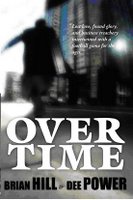Over the weekend I was talking to some of my friends who are Packer fans (to be honest that describes 90% of my friends), and one of them said, “Well, even if we don’t get to the Super Bowl this season, we certainly can in 2008.” Then he proceeded to tell me all the positions on the team that could use an upgrade: we could add another offensive lineman, maybe another tight end, and a team can always use more defensive backs.
I asked him, “Why do we have to wait ‘til next year?”
He replied, “It looks certain that Dallas is going to win the NFC this time around. Everybody says so.”
I could see this poor fellow is simply a victim of listening to the national media too much—the columnists and sportscasters who now seem to be instructing us on a daily basis that it in inevitable Dallas wins. In my opinion, their opinions mean nothing. These are the same peerless prognosticators who said last August that the Pack would be lucky to get to .500 this year.
The only way we should be concerned about any of this is if the Packers players and coaches were convinced it is inevitable Dallas wins. But they aren’t. In fact, they seem ready and eager for a rematch.
My whole problem with the “wait ‘til next year” philosophy is that all we know for certain is that we have a great team this year, and lots of breaks have gone our way in important situations during games, so now is the window of opportunity to get to the Super Bowl. Whatever you think causes a team to come together and be outstanding—team chemistry, the right blend of youth and experience, leadership, pure athleticism, having playmakers on both sides of the ball, having someone step up every week and make great plays—the Green Bay Packers of 2007 have that special magic. We didn’t realize it at the time, but they’ve had it since the opening kickoff in September.
You can’t depend on the team acquiring better players next year. Football is a game of subtraction as well as addition. Players age and lose their skills, teams can have a rash of injuries at key positions, and of course free agent defections can and will happen. Draft picks can turn out to be busts. There are no guarantees in the National Football League.
Just look at the nightmare that has become the Chicago Bears season. When I was doing my own forecast last August, I didn’t see any way the Bears would finish worse than 10-6. They probably didn’t either. But they had all those things I mentioned happen—age caught up to some players, they had bad luck with injuries, and a few key players departed in free agency or for other reasons. Now they are scratching their collective heads wondering how to right the ship.
The same thing has happened to a number of other teams that were predicted to be good this year, like the Ravens.
Football teams don’t seem to stay on an upward trajectory for a long period of time any longer. In the beginning of Mike Holmgren’s tenure as Packers coach, the team seemed to make incremental strides each year from 1992-1995, until they were ready to win the Super Bowl in 1996. But look at what has happened to this same highly skilled coach in Seattle. His teams have been up and down—he’s even had losing seasons.
One of my favorite “coachspeak” terms is “program.” A losing coach will observe, “That other team’s program is just a little further along than ours.”
What exactly does that mean, if anything? It just seems like an excuse. The Packers have dispelled the myth that it takes three years or more to rebuild your “program”. In the twenty eight games from 2005 to December 2006 the team was a dismal 8-20. In the next seventeen games, up through last Sunday they were a startling 15-2. That is a truly remarkable turnaround. It rivals what Lombardi accomplished from 1959-1960.
My dog has provided me with some insight and perspective on football that was better than anything I see on ESPN. If I fill her food bowl, she will stay there until she has eaten every last bit. If I fill it again, she will eat everything again—even if she isn’t that hungry anymore. To her, there is no guarantee they’ll be food in the bowl tomorrow. All she knows is that she has the chance to feast today. The future is now.
When all the stars seem aligned for a team, like they have been for the Packers this year, it’s important to seize the championship moment while you have it within your grasp. Fortune is fickle; it never stays with one team for very long. And the window of opportunity doesn’t warn you when it's getting ready to slam shut.
Just ask the Bears.

